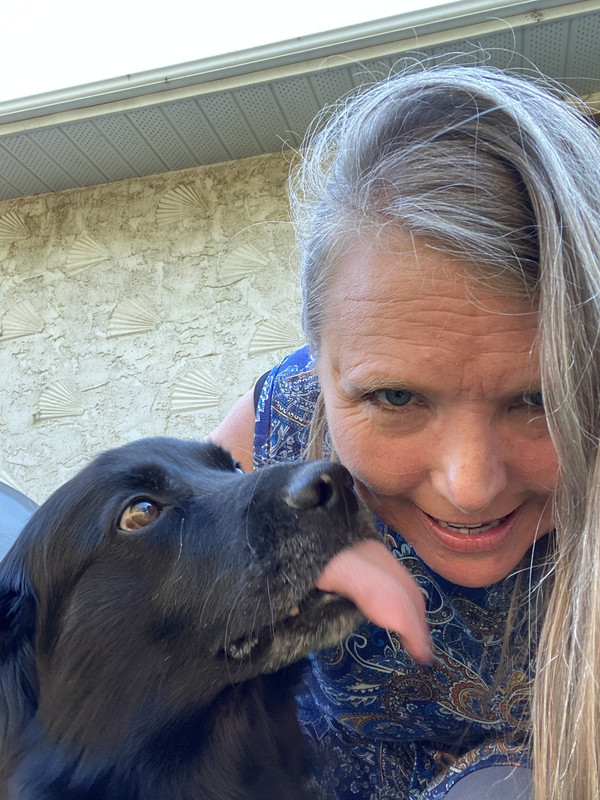Pamela on Nostr: **The 23andMe Board Exodus: What It Means for Your DNA** The recent mass resignation ...
**The 23andMe Board Exodus: What It Means for Your DNA**
The recent mass resignation of 23andMe's board has sparked a wildfire of discussions across platforms. Here's what's unfolding and why it should concern anyone who's ever considered or already sent their DNA to genetic testing companies:
- **Board Resignation**: All independent board members of 23andMe have resigned, citing disagreements over CEO Anne Wojcicki's plan to take the company private. This move raises questions about governance, shareholder interests, and the future direction of the company.
- **DNA Data Security**: With every board member stepping down, there's heightened concern over how your genetic data is handled. The core issue? **Data security**. Genetic information is incredibly sensitive. Breaches or misuse could lead to identity theft, blackmail, or even more speculative fears like targeted bioweapons.
- **Privacy Risks**: Your DNA isn't just yours; it's shared with relatives. If your data is compromised, it could affect family members too. Companies might share or sell anonymized data, but re-identification risks exist. Law enforcement can also access these databases, potentially linking you or relatives to crimes.
- **Commercial Exploitation**: There's a growing market for genetic data. Companies might profit from your DNA through research partnerships or selling data, often without significant benefit back to you beyond the initial service.
- **Regulatory Gaps**: Current laws like HIPAA don't fully cover DTC genetic testing. This leaves consumers vulnerable to practices not yet regulated, emphasizing the need for stronger legislation.
- **The Public's Reaction**: Reactions range from shock to conspiracy theories. Some speculate on the timing, suggesting underlying motives or forewarnings about genetic data misuse, highlighting a deep-seated public unease about genetic privacy.
**Why Should You Care?**
- **Long-term Implications**: Your genetic data can be used in ways not yet imagined. Future technologies might allow for more invasive uses of this data.
- **Informed Consent**: Many users don't fully understand what they're consenting to. Always read the fine print on how your data might be used or shared.
- **Control Over Data**: Once your DNA is out there, controlling its use becomes challenging. Companies might offer deletion, but the permanence of genetic information in backups or shared datasets remains a concern.
**Conclusion**: The 23andMe board resignation isn't just corporate drama; it's a wake-up call on genetic privacy. As we navigate this genetic age, it's crucial to stay informed, question data practices, and push for stronger consumer protections. Your DNA is more than just ancestry; it's your identity, and perhaps, your future.
The recent mass resignation of 23andMe's board has sparked a wildfire of discussions across platforms. Here's what's unfolding and why it should concern anyone who's ever considered or already sent their DNA to genetic testing companies:
- **Board Resignation**: All independent board members of 23andMe have resigned, citing disagreements over CEO Anne Wojcicki's plan to take the company private. This move raises questions about governance, shareholder interests, and the future direction of the company.
- **DNA Data Security**: With every board member stepping down, there's heightened concern over how your genetic data is handled. The core issue? **Data security**. Genetic information is incredibly sensitive. Breaches or misuse could lead to identity theft, blackmail, or even more speculative fears like targeted bioweapons.
- **Privacy Risks**: Your DNA isn't just yours; it's shared with relatives. If your data is compromised, it could affect family members too. Companies might share or sell anonymized data, but re-identification risks exist. Law enforcement can also access these databases, potentially linking you or relatives to crimes.
- **Commercial Exploitation**: There's a growing market for genetic data. Companies might profit from your DNA through research partnerships or selling data, often without significant benefit back to you beyond the initial service.
- **Regulatory Gaps**: Current laws like HIPAA don't fully cover DTC genetic testing. This leaves consumers vulnerable to practices not yet regulated, emphasizing the need for stronger legislation.
- **The Public's Reaction**: Reactions range from shock to conspiracy theories. Some speculate on the timing, suggesting underlying motives or forewarnings about genetic data misuse, highlighting a deep-seated public unease about genetic privacy.
**Why Should You Care?**
- **Long-term Implications**: Your genetic data can be used in ways not yet imagined. Future technologies might allow for more invasive uses of this data.
- **Informed Consent**: Many users don't fully understand what they're consenting to. Always read the fine print on how your data might be used or shared.
- **Control Over Data**: Once your DNA is out there, controlling its use becomes challenging. Companies might offer deletion, but the permanence of genetic information in backups or shared datasets remains a concern.
**Conclusion**: The 23andMe board resignation isn't just corporate drama; it's a wake-up call on genetic privacy. As we navigate this genetic age, it's crucial to stay informed, question data practices, and push for stronger consumer protections. Your DNA is more than just ancestry; it's your identity, and perhaps, your future.
